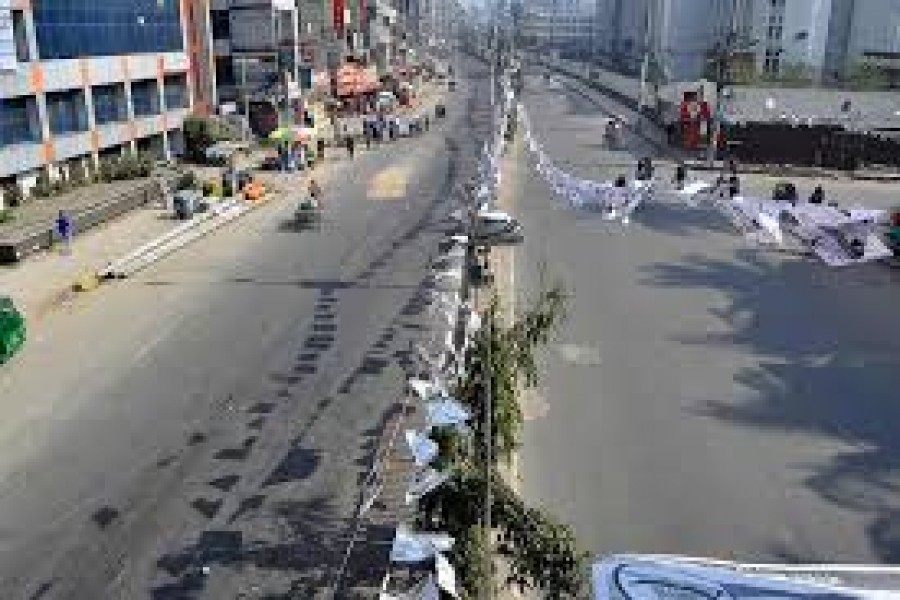On Saturday morning Dhaka greeted its residents with the utmost tranquillity imaginable as the sun poured its warmth on a city that looked quite unfamiliar. Unfamiliar because it was yet to come to terms with its new found respite from the usual hectic life. A languid and peaceful but not lugubrious sense of inactivity seemed to hang in the morning's atmosphere which was somewhat hazy with light mist. How pleasant and refreshing a morning walk could be in Dhaka was experienced by all who took a stroll at dawn!
The city polls may have given the candidates, their agents and avid supporters some anxious moments but for a person not involved with the process of electioneering, Dhaka appeared after a long, long time more like the desirable place to be in. Actually, the background of the ambience was set right at midnight, 12 p.m to be precise -the cut-off point from when no motor vehicle except the ones obtaining stickers from the authorities concerned was allowed to run on city roads.
After the midnight before, a car whizzed past after a long interval. It is not easy to remember when the Dhakaites last experienced such noiselessness in their neighbourhood. Along with the savoury silence, the air was more or less free from fume exhausted from automobiles. Definitely, if the air quality was measured on the day, the index would have shown an unprecedented improvement.
Much as the polling may have drawn the attention of serious people, for those not so concerned with it or its outcome it was an out and out enjoyable atmosphere all around. When they compared the stillness of the morning in particular and the near empty road, a heave of sigh or two escaped their bosom -what they really were missing day in day out. The peace and tranquillity are priceless for soul pining for becoming one with mother Nature. But in a city that defies Nature to become as artificial and mindless as possible, they are gasping for breath. The city is not to blame, it is its inhabitants who pollute it and render it unliveable. This happens because, city people do not love it and are concerned with their own archaic interests. In doing so, they lose both their peace of mind and gifts of Nature.
Is there any lesson that its inhabitants can draw from the day that by default has shown the positive side of city living? Of course, the non-mechanised vehicles were aplenty on the roads and they could easily move and cover a long distance in the shortest possible time. How beautiful it would be if the automobiles did not belch out noxious fumes as they sped without having to encounter long tailbacks! Electric cars provide an answer but the technology is still a long way off. Although some versions have been declared road-worthy and would be pressed into service on roads in developed countries, Bangladesh may have to wait long for taking advantage of the vehicles using that technology.
Should people here then be resigned to the fate of inhaling foul air on a permanent basis? It would be better to try all the alternatives at hand. First, the import of diesel or petrol guzzling reconditioned cars and other vehicles has to be stopped. Better it would be to go for collaborative venture to manufacture cars at home. Brand new cars do not spew as much carbon dioxide as the reconditioned and dilapidated ones do. But then the city can opt for an automobile-free day each week or at least fortnightly. Similarly, it may curtail the number of vehicles by allowing only the odd and even number of licensed cars every alternate day. Experiment such as this carried out in cities like Delhi has yielded some positive results. It may help lessen traffic jam as well as air pollution in this city also.


